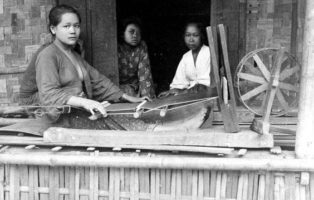Nederveen Meerkerk, Elise van
Fellow

How Colonial Connections Shaped Household Behaviour and Living Standards in the Dutch Empire, ca. 1830-1940
Research Question
How have ordinary households responded to, and shaped, colonial connections in the Dutch Empire? How and why did households in the Netherlands and the Netherlands Indies (present-day Indonesia) change their work and consumption behaviour in response to the consequences of colonial policies? What impact did their behaviour in turn have on socioeconomic development in the colony and in the metropole?
Project Description
In the period 1830-1940 the division of work that men, women and children did changed dramatically, both in the Netherlands and in the Netherlands Indies. This research project shows how colonial policies directly and more indirectly influenced these changes both in the colony and in the metropole. It will demonstrate that ordinary households responded very flexibly to socioeconomic, ideological, and institutional developments, sometimes with (unintended) consequences for colonial rule. However, the conditions under which this happened, as well as the effects on households’ wellbeing, differed fundamentally in both parts of the empire, only to further diverge in the later colonial period.
Selected Publications
Elise van Nederveen Meerkerk, ‘Challenging the de-industrialization thesis. Gender and indigenous textile production in Java under Dutch colonial rule, ca. 1830-1940’, Economic History Review (2016).
Elise van Nederveen Meerkerk, ‘Vergelijkingen en verbindingen. De arbeidsdeelname van vrouwen in Nederland en Nederlands-Indië, 1813-1940’, Low Countries History Review 130:2 (2015) 13-43.
Elise van Nederveen Meerkerk en Ariadne Schmidt, ‘Reconsidering the ‘First Male Breadwinner Economy’. Long-term Trends in Female Labor Force Participation in the Netherlands, c. 1600-1900’, Feminist Economics 18:4 (2012) 69-96

